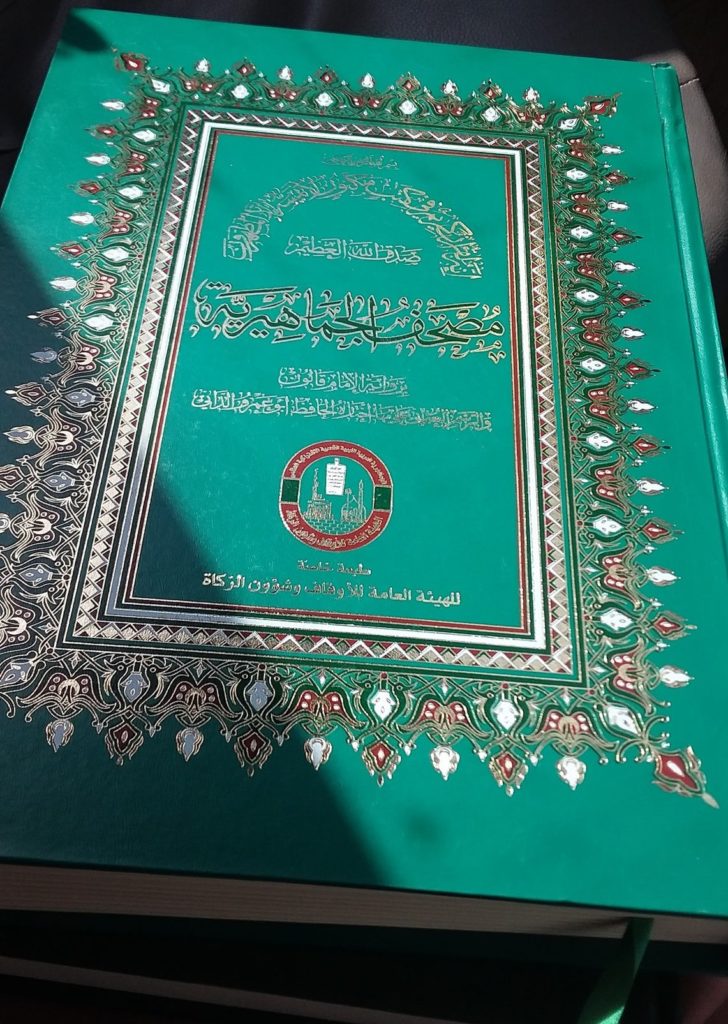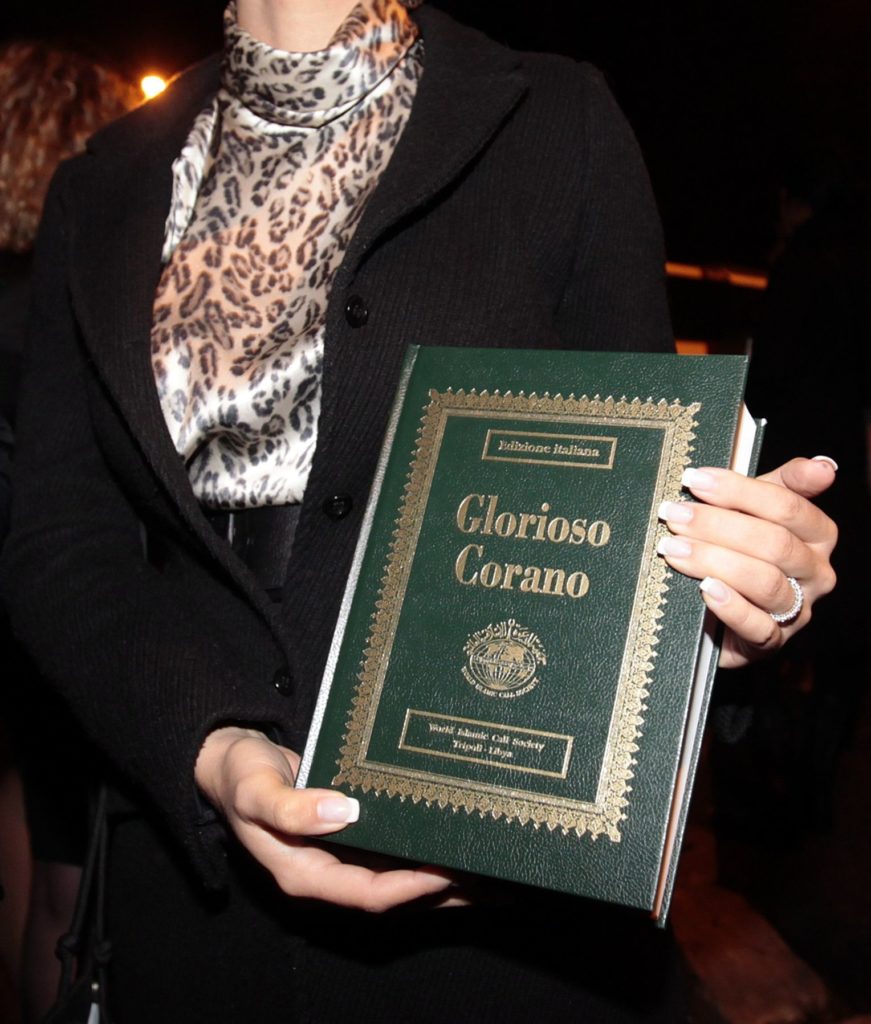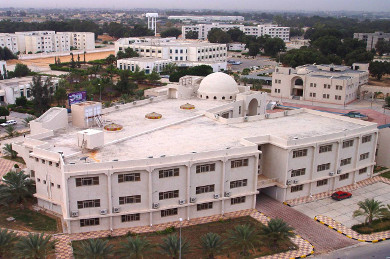The World Islamic Call Society (WICS, est. 1972) is one of the most active institutions engaged in global Muslim missionary activities. Part of the ideological strategy developed by Muammar al-Gaddafi (1942–2011) to use the Islamic religious network as a tool of leadership in Africa and beyond, WICS continues to operate even after the Libyan revolution of 2011. In 1974, WICS established the Faculty of the Islamic Call, a kind of Islamic high school designed to train imams who would be going abroad to promote Islam. With a quite sophisticated internal structure of governing boards etc., and wide connections in many parts of the world, WICS has been particularly active in Western Africa and Mediterranean Europe (i.e., Malta, Italy and Spain). Based mostly on the “Islamic Revolutionism” of al-Gaddafi, which is a kind of mix of popular socialism (Jamahiriyah) and political Islamism, WICS also promotes a number of traditional Muslim sources via numerous publishing projects, and these include publishing editions of the Qur’an. For example, in 1982 WICS published the Qur’an in Arabic according to the Warsh reading, which is the most popular reading in West Africa. This edition of the Qur’an was called al-Muṣḥaf al-jamāhīrīyah (“The Jamahiriyah Qur’an”) and was used as a kind of means to signal Qaddafi’s religious devotion to the Muslim world: it is reported that he personally inscribed the last word of the Qur’an, al-nās in Q. 114:4, in the handwritten prototype. This edition not only represents the local tradition of “officially” using the Warsh reading rather than the Ḥafṣ reading (in contrast to the vast majority of the Qur’ans printed in Egypt, Turkey, India, Syria, Iran etc.), but also played a significant role in the development of modern Qur’an printing culture. In contrast to early Warsh Qur’ans (for example, those printed in neighboring Algeria in 1911and afterwards), those from Libya have historically been much easier to read with quite a simple graphic and long divisions between the words. Many later offprints from the 1990s and 2000s used this edition as a template, even if it was “pirated” without mentioning the real source.

In the late 1970s al-Gaddafi promoted a primarily pan-Arabist strategy for Africa, and WICS therefore usually published works in Arabic intended for the region. Still, as early as 1974, WICS had already started to publish translations of the Qur’an into various world languages. It is not an easy task, however, to catalogue all the translations WICS published during the more than 50 years of its operations. In contrast to some other official presses like Diyanet (the Turkish Directorate of Religious Affairs, TDRA) or the King Fahd Qur’an Printing Complex (KFQPC), the approach taken by WICS has been rather unsystematic. Formally, the translations follow different styles when it comes to the cover and design (although most of them were published with the Arabic text, usually according to the Ḥafṣ reading), and a few of them appear to have been printed in Tripoli, while others were produced outside Libya. After sanctions against Libya were imposed in 1986, books printed under the WICS logo were not really welcomed by many Islamic centers or libraries in the West, and this is one of the reasons why their translations are not widely accessible, once again in contrast to KFQPC or other Islamic publishers. Some of the WICS translations were distributed in quite an ostentatious way: for example, when visiting Rome in 2009, al-Gaddafi assembled a group of 200 Italian women (with special requirements regarding age, appearance and dress code), to whom he delivered a lecture on “the virtues of Islam” and distributed the recently published WICS translation of the Qur’an into Italian. Partially published in 1984 (suras 1 and 78–114), this translation was produced by Fuad Kabazi, a Libyan politician and writer; a few years later, the translation of the entire second half of the Qur’an appeared in print (from suras 19 to 114). This edition was published with Italian text only, and contains some introductory statements, fairly long prefaces to every surah and, finally, dozens of footnotes providing commentary on the text.

Italian was not the only language of particular interest to WICS. Among the translations produced with funding from this organization and later exclusively published by them, there is also one into French by Zeinab Abdelaziz (Le Qur’ān: Traduction du sens de ses Versets) and into Maltese, by Martin R. Zammit and Muhammad el-Sadi (Il-Qoran Imqaddes). The former, first published in 2002, still uses a kind of ideological frame that can be linked to al-Gaddafi, criticizing the West, Orientalism and Christianity, and promoting the recent trend of “scientific interpretation” of the Qur’an known as Bucailleism. As is typical of many translations authored by Arabs, the translator preserves many Arabic terms in her translation (see: Qur’an translation of the week #64: Polemics and da’wa between Egypt, France and Libya: Zeinab Abdelaziz’s Le Qur’an: Traduction du sens de ses Versets – GloQur- The Global Qur’an). This also applies to the Maltese translation but, in contrast to French, the Maltese language contains a great deal of Arabic vocabulary. The Maltese translation was published in 2008 (jointly prepared by Martin R. Zammit, a scholar of Oriental Studies, and local imam Muhammad El-Sadi) and is less critical of the West and, as it is clear from the introduction, just promoting the translation “made especially for Muslims”. It does not look as if WICS had any guidelines for the standardization of their translations or an established vetting and revision process (as, for example, the Muslim World League and KFQPC do), so it looks as if the translators were able to be more or less flexible in their approaches and exegetical choices.

In addition to these languages, WICS also published a translation of the Qur’an into English. As early as 1974, an edition of Muhammad Marmaduke Pickthall’s translation was published (alongside the Arabic text) in Tripoli. Interestingly, just three years later, in 1977, the same translation was printed by the MWL in New York for free distribution in the USA; both editions, however, are no more than reprints of earlier editions. WICS also had some interest in recent developments in the Mediterranean area: for example, in 1989 it published the newly produced Qur’an translation into Albanian by Sherif Ahmeti. Other languages WICS covered include German, Dutch and Spanish, in all of which it usually reproduced existing translations with no editorial changes. Once again in contrast to the TDRA or KFQPC, WICS has been less interested in translations into “Muslim languages,” urging Muslims to study Arabic instead. For example while many publishers were especially interested in Qur’an translation into Eastern European and Central Asian languages (especially after the fall of the Soviet Union in 1991), WICS had no particular interest in this arena. However, as mentioned earlier, due to the lack of research on this institution it is hard to compile any kind of comprehensive list of translations they have published, and this is therefore an area that requires more detailed study, to be addressed in our upcoming threads.

Mykhaylo Yakubovych
